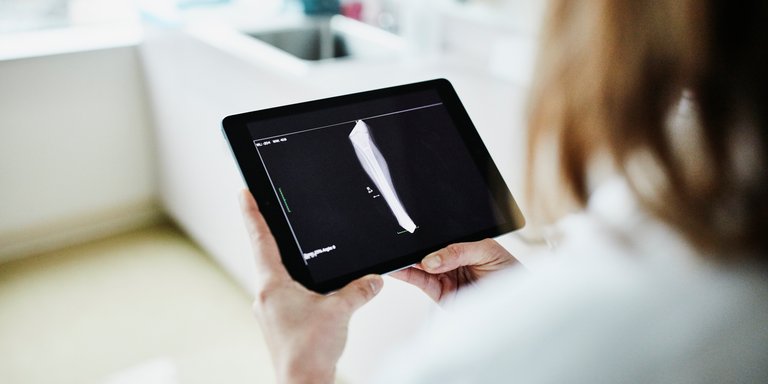
Medical risk research
We transform medical advances into insurance solutions
properties.trackTitle
properties.trackSubtitle
Evidence-based decisions founded on the latest knowledge
Life Science Report
Dive into the Life Science Report 2025.
Our focal areas of medical risk research
Mental health conditions
No. 1
Mental diseases are the number 1 trigger for benefits in disability income insurance.
Mental health conditions are now the number one cause of occupational disability claims. By way of example, around 30% of all disability claims in the German market relate to mental health conditions. Most claims cannot be assessed adequately on the basis of conventional questionnaires and standard processes. This frequently results in overhasty evaluations, in some cases with medical assessments being accepted without question. As mental health conditions often have a poor medical prognosis, a high number of patients experience chronification and recovery rates are low, payouts for such conditions frequently continue until the insurance policy expires.
"Psyche" claims initiative
Munich Re has launched the "Psyche" claims initiative to tackle the challenges outlined above. This initiative aims to optimise the disability claims assessment process and ensure that appropriate decisions are reached. Working together with pilot partners from the primary insurance industry, we have developed innovative tools that enable precisely this. The result is an innovative workflow for the assessment of mental health claims. This new workflow delivers short reaction times, appropriate assessments and also cost savings.
Insurability of cancer
15%
Already today, up to 15% of the cancer treatment costs for some health insurers are attributable to immunotherapies.
Almost every day, new reports emerge relating to the successful use of immunotherapy. Many cancer patients are already benefiting from such treatment. However, in others the resulting immune responses in the body cause additional complications. There is no doubt that the treatment opens up new prospects – both in medicine and in the insurance sector.
New demand: a challenge and an opportunity for private health and life insurers
Personalised immunotherapies are expensive, accounting for up to 15% of the cancer treatment costs of primary health insurers. Any insurer that refuses to meet the cost of treatment citing the lack of long-term studies and of licensed drugs without studying the matter closely is putting their own reputation at serious risk. On the other hand, cost pressures on state health insurance schemes are growing, prompting new demand for insurance in some countries.
Challenges presented by expanded insurability
More and more cancers are changing from terminal illnesses to chronic impairments. Munich Re has its finger on the pulse of this change. We are continually evaluating all available clinical studies from around the world and translating the latest findings into insurance solutions. This enables us to support you in continually expanding the insurability of cancer and positioning yourself on the market as an innovative health insurer.
Rare diseases
10%
According to estimates from the Munich Re medical centre of competence, up to 10% of the German population will be affected by rare diseases by 2020 .
Anyone applying for life insurance has the right to an individual and fair risk assessment. Yet what happens if the applicant discloses a condition that even the company's own medical officer has never heard of? The challenge for risk assessors is to demonstrably assess the individual risk based on statistical evidence and therefore in accordance with the law in spite of the meagre data available. This ties up capacities and takes time.
The Gate – globally networked specialist knowledge, faster processing times, maximum legal certainty
Munich Re has developed the internal knowledge platform Get Access To Medical Expertise, or "The Gate" for short, to enable existing knowledge to be retrieved at any time and from anywhere in the world and to systematically increase productivity when assessing medical risk for rare diseases. Local medical consultants at Munich Re can use "The Gate" to obtain instant access to expertise and existing models for assessing individual medical cases.
Medical risk assessment
45%
A Munich Re analysis performed on behalf of the disability insurance industry reveals that 45% of all GP reports requested at a later date justify higher premiums.
The health questions in the application process employed by life insurers represent another key area of research for the medical consultants at Munich Re. Their aim is to reduce the number of questions, and thereby the effort for all parties involved, without reducing the risk quality. Continual cost-benefit analyses of all processes involved in application and risk assessment play a key role in this. For instance, which questions reliably reveal important medical information, and which could be omitted?
Let's look at GP reports as an example. Requesting and evaluating these reports costs time and money. As a result, there is a risk that clients may withdraw their applications due to the delays associated with obtaining information from their GP. However, this perspective ignores the fact that the value of the information contained in the GP reports is significantly greater than the risk described above. Without these reports, details of medical conditions that are essential for drawing up policy agreements in line with the degree of risk would often remain unknown. GP reports are therefore instrumental in protecting insurers against unjustified claims.
Holistic view of risk
5%
It has been proven: Only 5% of overweight insured persons are responsible for 80% of benefit claims.
The example of obesity: The number of applicants with an increased BMI will continue to rise. For life insurers this means that in future only a fraction of the population will be insurable at normal prices based on conventional risk assessment. Insurers who refuse to take a softer approach to BMI thresholds at the expense of risk quality must be prepared to see a fall in new business or expand insurability using a more sophisticated risk assessment. It is for this exact purpose that Munich Re has developed the new Multi-Risk Calculator for the MIRA risk assessment tool.
The first of its kind, this new calculator evaluates an applicant's BMI, blood pressure, cholesterol and smoking status. The result? Many applicants with an increased BMI can be insured more cheaply than before if, for instance, their blood pressure and cholesterol values are within the normal range.
3 reasons to choose Munich Re
State-of-the-art medical risk decisions based on legal certainty
Direct access to Munich Re's world-leading centre of competence for medical risk research and the latest findings
Competetive advantages through continuous expansion of insurability
Contact our experts

/Kuederli_Lutz_n353353_X11_1x1.jpg/_jcr_content/renditions/original./Kuederli_Lutz_n353353_X11_1x1.jpg)
















